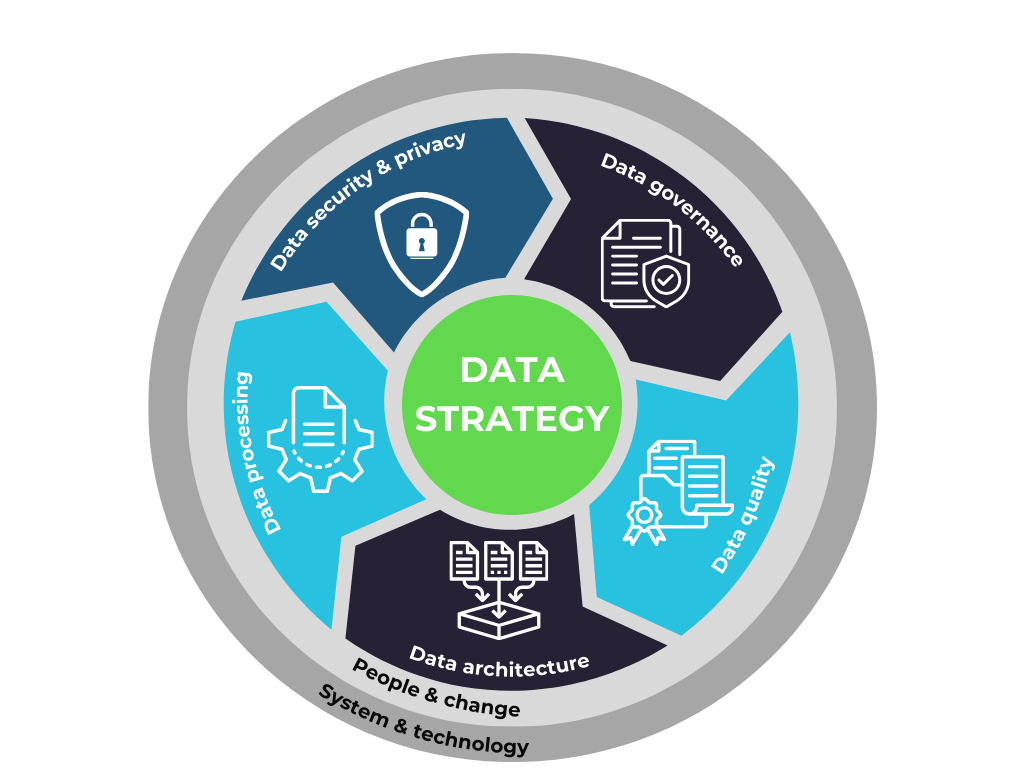In the dynamic world of project management, the recipe for success is a tantalizing blend of precision, innovation, and adaptability. Beyond the tried-and-true business processes and indispensable user-friendly tools lies a hidden gem - the uncharted realm of data. In this blog post, we embark on an illuminating journey to unveil the well-guarded secrets of effective Project Management Organizations (PMOs).
In this blogpost we have highlighted the following key-factors:
- Which data management strategies dominate the practice of project management organizations.
- Which best practices have proven successful among leading PMOs.
- How PPM (Project Portfolio Management) solutions contribute to the evolution of a data-driven organization.
Success factor: developing the data management strategy
80% of organizations do not have effective data management. Our experience shows that data management strategies are a by-product of process design and reporting obligations in most organizations. However, this falls far short of the potential of digital data management for modern business management. Even companies with their own business intelligence teams often fail to pursue data management strategically, as ad hoc requests and data preparation challenges must be managed in daily business.
PMOs with modern PPM solutions are ideally suited to continuously provide business decision makers with relevant insights into the operational business and enable them to make better and faster decisions. To do this, the first step is to define the most important KPIs. This is achieved by examining possible KPIs to see how they support the achievement of corporate goals.
Success factor: Optimizing data quality
If your PMO has already been using the analytics functionalities of a PPM solution for a long time, it may happen that the variety of data collected no longer creates any concrete added value when implementing measures. In this case, data management needs to be consolidated again and tested for effectiveness. Due to the considerable number of system integrations, data evaluations can become error-prone or must be merged manually. Early automation of data pipelines is an important investment to ensure sustainable, expandable, and flexible reporting.

Success factor: Defining data governance
The role rights of your PPM solution make it easy to define and control the direct viewing and processing of existing data. In practice, this often virtually covers the topic of data governance. However, this leaves many valuable data insights hidden in silos. Developing a data governance framework helps your organization roll out cross-departmental, actively used data management. Increased data transparency opens opportunities for synergies and early risk identification, but also requires a serious look at compliance guidelines and data protection regulations, as well as adjusted business processes where necessary.
Success factor: Investment in change management
PMOs with powerful PPM solutions and a data strategy can significantly expand their impact within the company. This can initially lead to internal resistance and conflicts with other departments, but it does not have to be that way: Your PMO should not develop data governance for your company but can and should be an important driver. A data driven PMO provides targeted support in strategic implementation but does not define it. The PMO also does not compete with the Business Intelligence Unit but can move the company forward faster in close cooperation with it. Reflect on the central interfaces in the company across departments and create new processes and structures that promote your business agility depending on the technological possibilities, personnel resources, and capabilities of the respective departments.
Want to explore the essential steps for data-driven project management organisations? You can download our checklist below.
Checklist for data-driven project management organizations.pdf
96.62 KB
Capture SmartStart for PMOs
No matter what maturity level you are at with your PMO; with Capture SmartStart we have put together a compact service offering for you to take your team and PPM deployment to the next level.